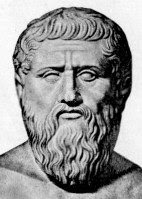There was a recent article in the New York Times, “Three Score and Ten”, which was inspired by a Lancet paper that predicted the median life expectancy for babies born in America in 2007 is greater than or equal to 104. In 3000 BC, it was 24 and stayed there almost until the industrial revolution. In 1850, it was 38. In 1909, it was 50. In 1959, it was 67. Current demographics indicate it’s only 78. The extra 26 years that Lancet predicts comes from anticipated future improvements in reducing death rates.
...
With the phenomenal scientific progress over the past few centuries, especially during the last century, human aspirations and hopes of one day achieving immortality have only grown and multiplied.
According to latest research findings, UK scientists claim they can now stop the aging process at 50. That is, centenarians with the bodies of 50 year olds can soon be a reality.
As it is, half of babies now born in the UK and elsewhere in the West can live up to 100, thanks to higher living standards. Which would be true of most developed nations. However, their bodies continue to age and suffer wear and tear at the same rate, rendering them weak and vulnerable in their advanced years.
...
Telomeres (tē•lo•meres) are buffers, protective pieces of DNA at the ends of each and every chromosome in every cell in the body. Telomeres are the cellular clock of aging, every time a cell divides, telomeres get shorter. When telomeres get too short, cells can no longer divide and proliferate; they become old cells. Maintaining telomere length allows cells to continue to divide and proliferate for a longer time; they simply live and function longer.
...
Are telomeres unique to individual DNA? If so, does this preclude any universal treatment for aging?
Dr. Langmore: Different individuals have telomeres with exactly the same DNA sequence but of different lengths. It is too early to say whether there is any relationship between telomere length in an individual and his or her life expectancy, or whether a treatment that would artificially lengthen telomeres would reverse the aging process. One problem is that even in one individual the telomeres of different chromosomes have very different lengths. Therefore an individual might have on average long telomeres; but, he might have one chromosome with a very short telomere that could affect cell growth.
...
Life expectancy is increasing in the developed world. But Cambridge University geneticist Aubrey de Grey believes it will soon extend dramatically to 1,000. Here, he explains why.
...
Longevity is the quest of many individuals. To live a long life and yet remain physically, mentally, and spiritually healthy is a challenge requiring great wisdom.
A long lifespan is a blessing, which has to be earned with the wisdom of an anti-aging healthy lifestyle.
One of things that is become more clear to me, science still is not sure whether controlling telomeres is truly the secret to immortality, a tell tale indication one has achieved immortality, or an interesting observation about the human aging process.





![Validate my Atom 1.0 feed [Valid Atom 1.0]](valid-atom.png)
3 comments:
Hi,
just wanted to tell you that this is absolutely fascinating and thought-provoking stuff you´re writing. I´ve too slowly begun to realize how limited and self-destructive our beliefs and attitudes towards aging actually are.
Btw. Did you know about this super-centinentarian accounted in Norse sagas, ancient Danish king Harald Wartooth, who lived into age of 150:
http://en.wikipedia.org/wiki/Harald_Wartooth
Thank you Michael for the information!
I did not hear specifically about the Danish King Harold Wartooth, but I did hear about many such people in history. It is truly amazing to me how many people still beleive it is impossible to live more than 125 years.
Hi Ben,
I’m excited to share with you my Ebook ‘The Fun Way of Physical Immortality Philosophy’. In the ‘FUN WAY’, fun emanates from a deep loving space within the heart and spirit. It is an educational and playful celebration of the ‘party of ongoing healthy life’!
http://physicalimmortalitythemasspossibility.wordpress.com/2011/03/27/the-fun-way-of-physical-immmortality-philosophy-ebook-by-janni-lloyd-available-now/
blessings Janni Lloyd
Post a Comment